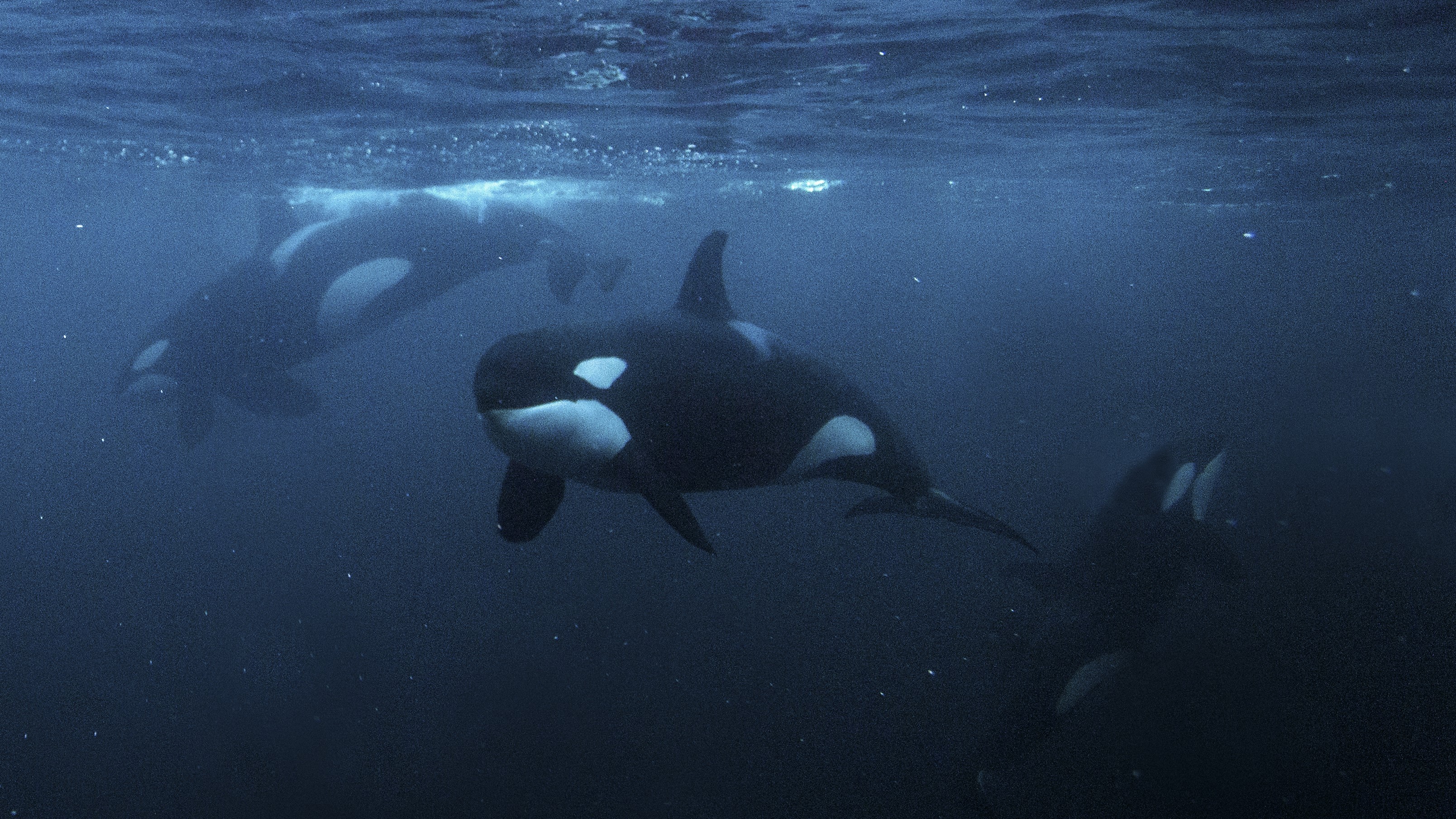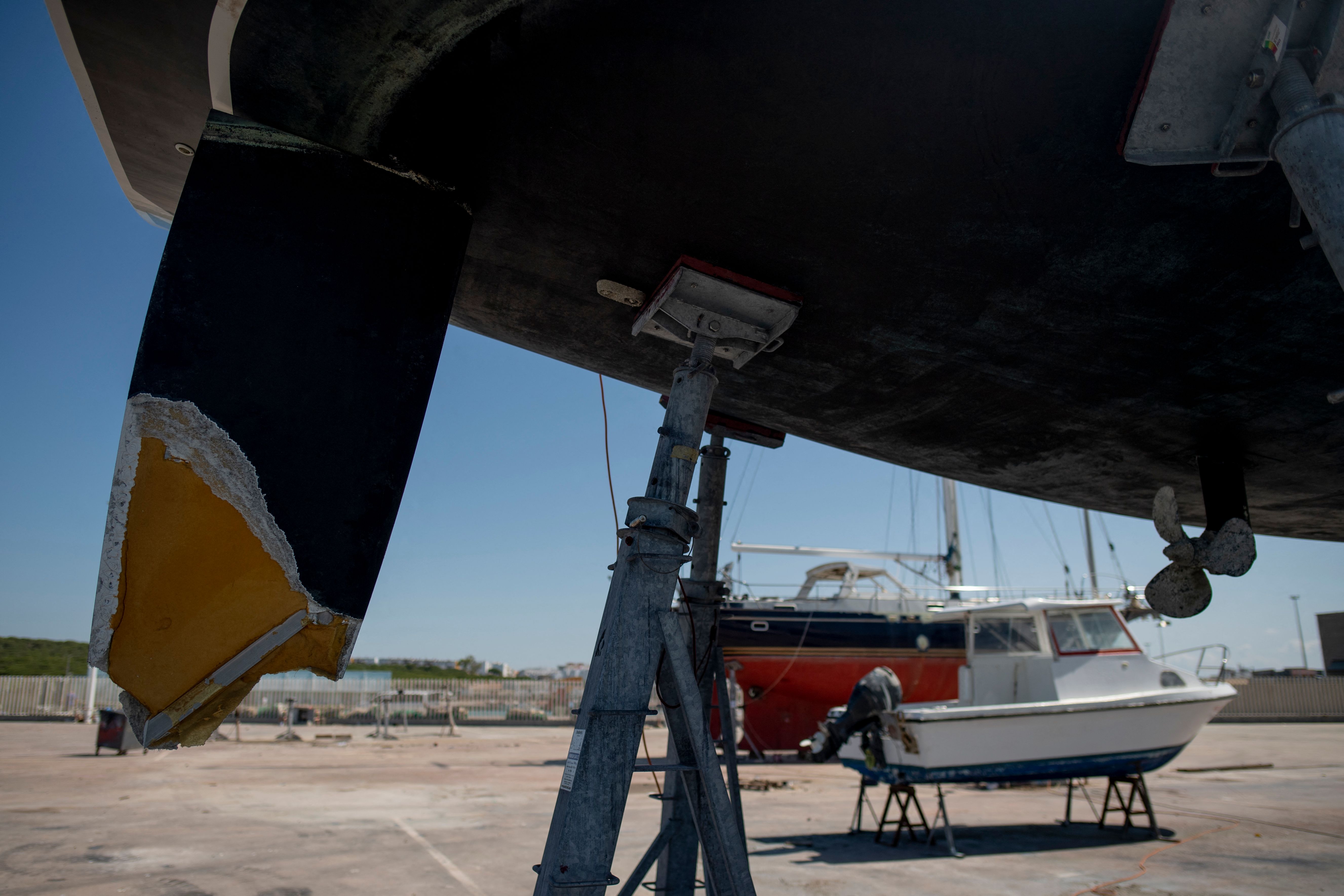Boat-ramming orcas may be using yachts as target practice toys, scientists suggest
Experts have a new theory about why orcas are targeting sailboats in the Iberian Peninsula — they're using them to practice hunting their favorite food.

Scientists have a new theory to explain why orcas are ramming yachts in the Iberian Peninsula — the boats are practice targets for learning to hunt their favorite food.
When young Iberian orcas (Orcinus orca) started hitting and sinking boats in 2020, experts wondered whether it was revenge, accidental, or just a fun thing to do. But the new theory suggests the juvenile orcas might be using the boats' rudders as targets to practice hunting Atlantic bluefin tuna (Thunnus thynnus).
Since 2020, the sailing community has been, understandably, highly interested in the predators' whereabouts. "We saw that as a great opportunity for science," study lead author Bruno Díaz López, director of the Bottlenose Dolphin Research Institute (BDRI), told Live Science. The team realized they could use citizen science to gather accurate data about the orca population's distribution. "The sailors aren't going to be lying to each other because it's quite a serious problem," he said. Nearly half (47%) of the study's 597 records of killer whale occurrences related to vessel interactions.
Using this data, the team created computer models of the orcas' movements to fill knowledge gaps around their seasonal movements. Their models showed that the orcas and tuna are driven by the same environmental factors, meaning that knowing where the tuna are located gives you a good idea where the orcas will be. They discovered seasonal shifts in the orcas' preferred habitats, which align with the tuna's migration.
Related: A really big shark got gobbled up by another, massive shark in 1st known case of its kind
The findings were published June 18 in the journal Ocean and Coastal Management.
Orcas are highly specialized predators, and different communities prefer different prey, depending on the most abundant food available. Iberian orcas "really depend on tuna," Díaz López said.
Get the world’s most fascinating discoveries delivered straight to your inbox.
Atlantic bluefin tuna are no longer endangered thanks to conservation measures to protect them from overfishing. Their recovery makes it easier for the Iberian orcas to find food, giving them more leisure time. "If you eat well, you have more time to play," Díaz López said.

And this play might give them the opportunity to practice useful skills. Orcas have to work together to catch tuna, as the fish can weigh hundreds of pounds, swim in large schools and are among the fastest fish in the sea.
To isolate an individual tuna and get it away from the protection of the group, the orcas ram, Díaz López said. "Maybe one orca hits, and then the other one hits again," he said. Once the orcas have separated an individual tuna, they tire it out and drive it towards shallower waters where it's easier to catch.
From reports of the killer whales' behavior towards sailboats, Díaz López believes the orcas are performing similar actions as they would during a hunt: repeatedly ramming the fast-moving rudder before trying to bite it. "To play is to learn," he said. "If you have a dog and you use a toy, the dog is learning a hunting technique."
Erich Hoyt, a researcher at marine charity Whale and Dolphin Conservation, who was not involved in the study, agrees that the orcas are likely playing. The interactions are most likely due to "normal predator curiosity leading to play behavior," he told Live Science via email. However, he's not convinced the boats are just target practice.
"I don't believe the orcas are playing with the rudders just to refine their hunting skills for tuna," he said. "I think their play is more like kids' play, without a set goal but which, in effect, helps building cognitive and physical skills."
To prevent further negative encounters, Hoyt recommends sailors monitor the orcas' movements and stay away. "The more the activity happens, the more it gets reinforced to continue," he said.
He believes this behavior is a phase that will eventually fizzle out. "In our limited experience we have seen that fads disappear over time," he said.

Melissa Hobson is a freelance writer who specializes in marine science, conservation and sustainability, and particularly loves writing about the bizarre behaviors of marine creatures. Melissa has worked for several marine conservation organizations where she soaked up their knowledge and passion for protecting the ocean. A certified Rescue Diver, she gets her scuba fix wherever possible but is too much of a wimp to dive in the UK these days so tends to stick to tropical waters. Her writing has also appeared in National Geographic, the Guardian, the Sunday Times, New Scientist, VICE and more.


